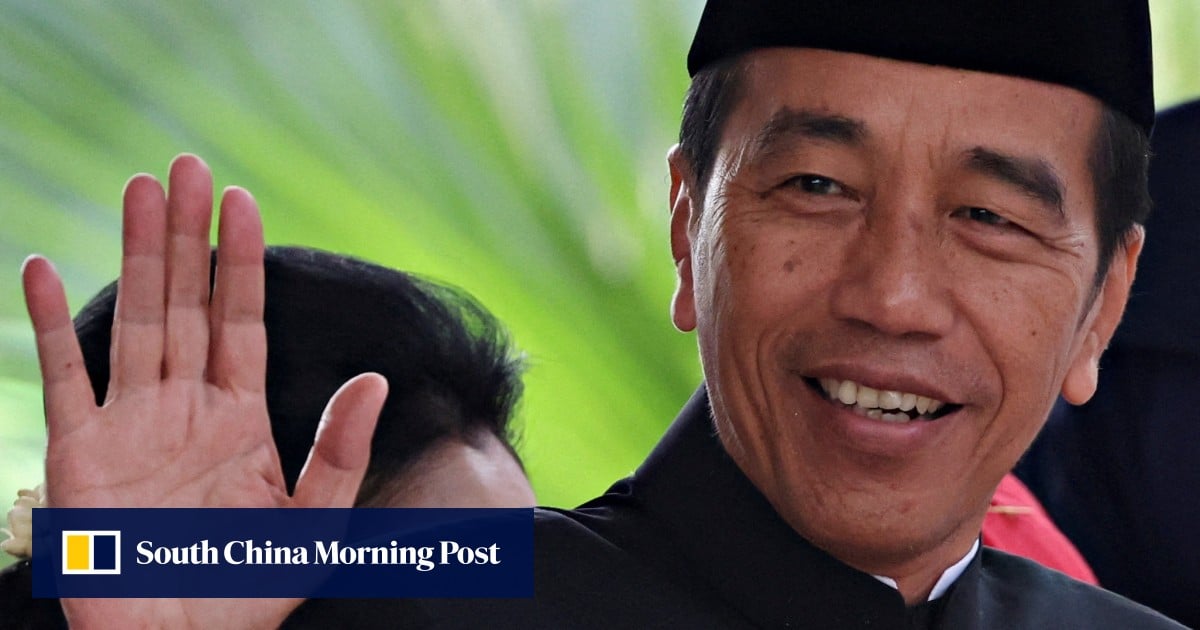As Joko Widodo prepares to leave office after a decade as Indonesia’s president, he bequeaths a mixed legacy: a nation reshaped by ambitious infrastructure projects and steady economic growth, yet shadowed by fears of democratic backsliding.
Widodo, affectionately known as Jokowi, earned the title of Indonesia’s “infrastructure president” for overseeing the construction of highways, road improvements and the launch of Southeast Asia’s first high-speed rail project, among other major public transport initiatives. But while his administration achieved a steady 5 per cent economic growth rate during his tenure, this fell short of the 7 per cent target Widodo had set for himself.
For his critics, he will be seen as the president who weakened democracy in Indonesia
Despite enjoying high approval ratings throughout his two-term presidency, rumours swirled that Widodo might hesitate to step down. These suspicions intensified in 2022 when senior officials, including close ally Luhut Pandjaitan, expressed support for extending his presidency beyond the constitutional two-term limit. Although Widodo denied any intention to amend the constitution, many speculate he explored this option behind the scenes, igniting a national debate – with critics warning that such moves could erode Indonesia’s hard-won democratic reforms.
“He will certainly be remembered as the infrastructure president, having built everything from roads and bridges to dams and power plants, as well as his plan for Nusantara, the new capital city,” said Siwage Dharma Negara, a senior fellow at the Singapore-based ISEAS-Yusof Ishak Institute and co-coordinator of its Indonesia studies programme.
“But for his critics, he will be seen as the president who weakened democracy in Indonesia, brought back political dynasties, and created a setback in terms of corruption and good governance.”
Widodo’s rise to power was particularly striking: a former furniture salesman, he became the first Indonesian leader without a military or political background and was viewed as a beacon of hope for the young democracy, symbolising a break from elite dominance.

